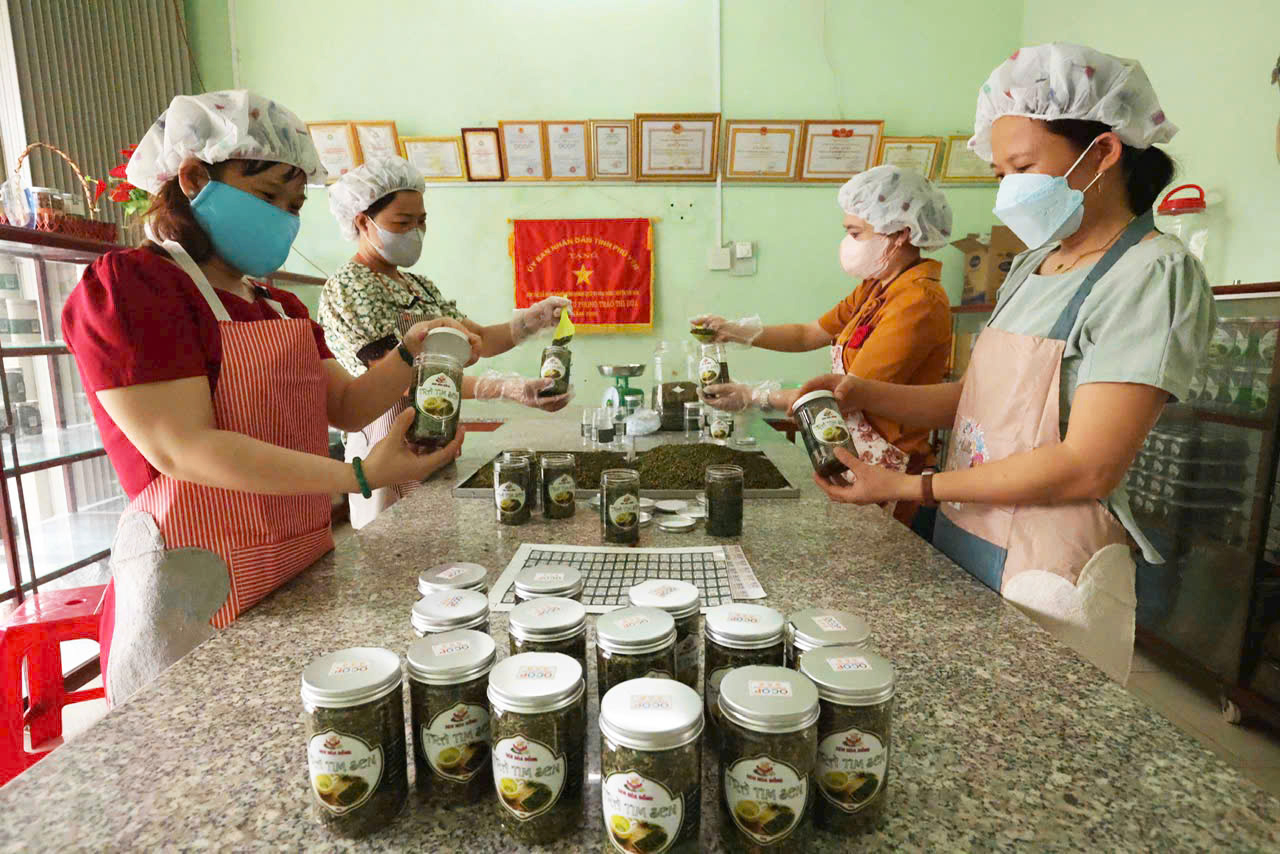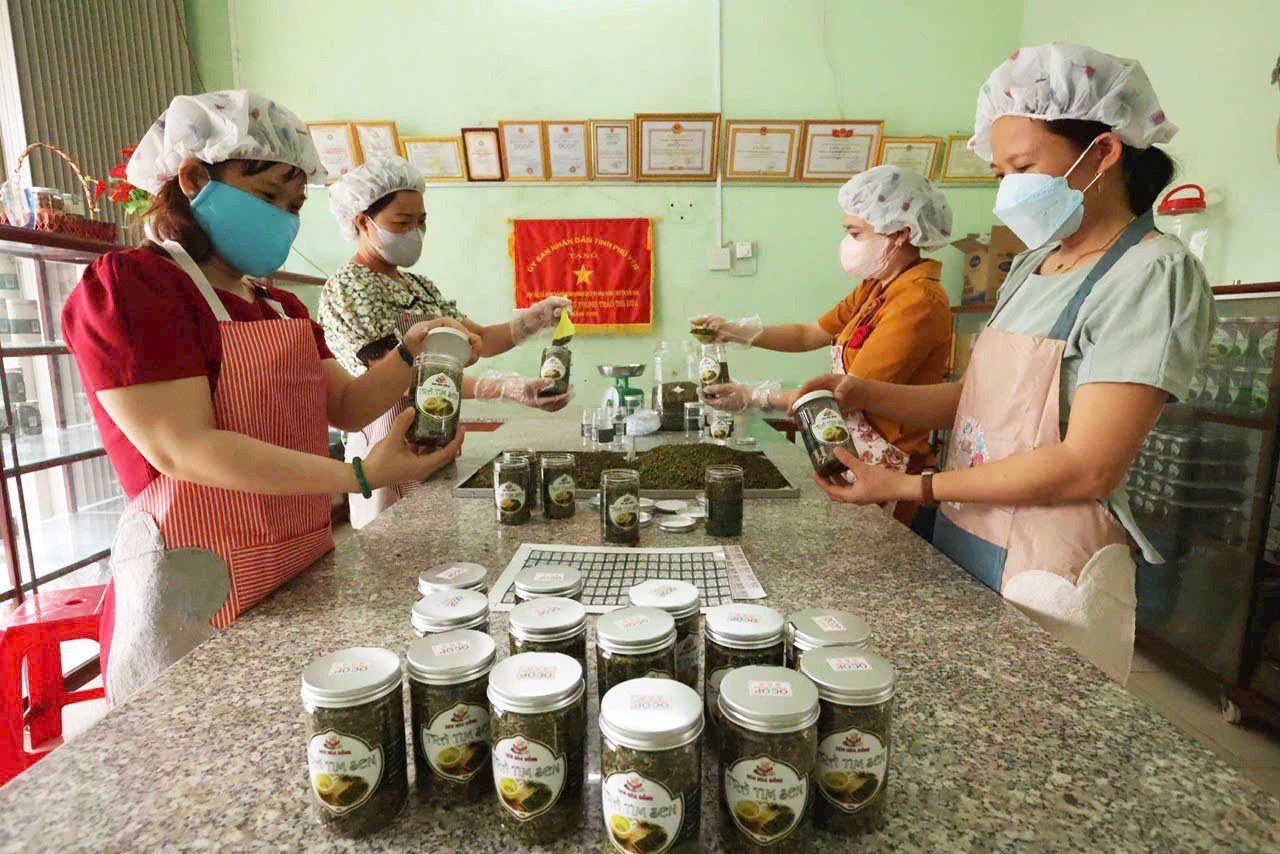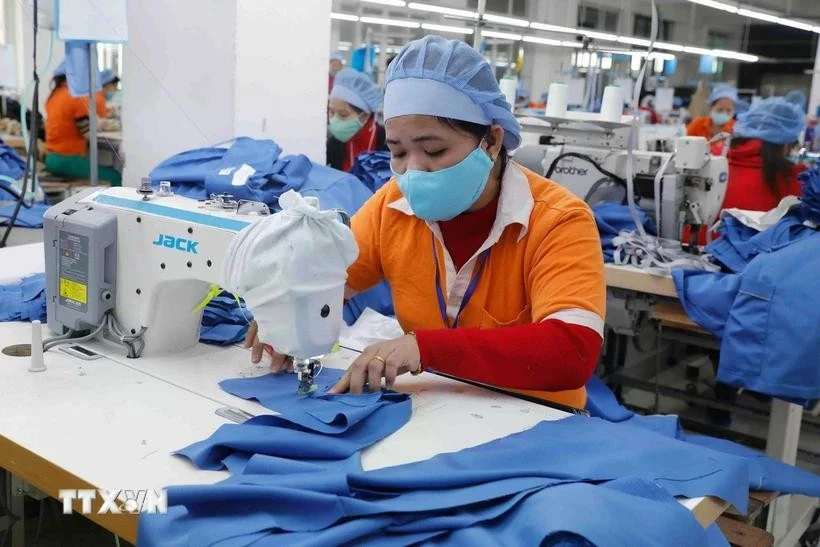Proactively and actively participating in the One Commune One Product Program (OCOP), lots of cooperatives have contributed to improving the product quality, increasing competitiveness, expanding consumption markets as well as creating motivation for cooperatives to develop in a stable and sustainable manner.
 |
| Hoa Dong Agricultural Service Cooperative (Tay Hoa district) is expanding its raw material area to produce more products from lotus |
According to the Provincial Cooperative Union, developing cooperatives associated with OCOP products plays a very important role in the process of transforming agricultural production thinking into agricultural economy. With flexibility, proactiveness, and sensitivity to grasp the market, many agricultural cooperatives in the province have had OCOP products, meeting customer needs as well as linking production, consuming raw materials, and increasing income for people.
Hoa Dong Agricultural Service Cooperative (Tay Hoa district) is one of the pioneering cooperatives in developing products that meet OCOP standards. Currently, the cooperative has had 3 products processed from lotus that have met 3-star OCOP standards, which does not only affirm and enhance the lotus brand of the cooperative but also contributes to increasing prestige and strengthening consumer confidence. According to Mr. Nguyen Thanh Minh, Director of the cooperative, in the past, local people mainly grew lotus and harvested mature lotus pistil to sell to traders, so the output was quite unstable. Grasping the mechanisms and policies of supporting linkages along the value chain in the production and consumption of agricultural products, the cooperative has successfully built a lotus growing model, linking from production to on-site processing, bringing double efficiency and creating high and stable income for farmers.
“The cooperative is completing documents to upgrade lotus seed powder products to 4-star OCOP and continue to build and develop other products processed from lotus; simultaneously, it is converting and expanding the lotus growing area, striving to increase the lotus growing area in the whole commune to 40 hectares by the end of 2025”, Mr. Minh added.
After 5 years of implementing the OCOP Program, the entire province has currently had 389 OCOP products with 3 stars and 4 stars. However, the units that have achieved OCOP product certification in the province are mostly family enterprises and business household; the number of cooperatives with OCOP products is very small. According to statistics from the Provincial New Rural Coordination Office, there have currently been only more than 20 cooperatives and cooperative groups with products participating in the OCOP Program. This number is really too small compared to the current potential of the cooperatives in operation.
According to many cooperatives, the development of OCOP products from cooperatives is facing some difficulties. Specifically, in the process of implementing the OCOP Program, cooperatives must expand production, change technology, have value chain linkages and need lots of capital. However, currently most cooperatives are small-scale, accessing credit capital, linking along the value chain, and product output still face many difficulties.
Mr. Nguyen Van Hong, Vice Chairman of Dong Hoa Town People's Committee, said: Up to now, Dong Hoa district has had 34 products achieve 3-star OCOP; including 8 OCOP products of 3 cooperatives. Currently, cooperatives are continuing to complete documents and register to participate in the OCOP Program; striving to have 10 more OCOP products recognized in 2025.
According to Mr. Ho Van Nhan, Deputy Chief of the Provincial New Rural Area Coordination Office, cooperatives in the province still have a lot of untapped potential. Many cooperatives have small production scale, weak internal capacity, limited ability to develop production and business, and have not boldly expanded their industries and diversified products in accordance with local advantages and market mechanisms. Many cooperatives have not built brands for their key products, most of which are raw, unprocessed products. “To improve this situation, in the coming time, the Agriculture sector will focus on coordinating with relevant departments, sectors and localities to support cooperatives in identifying key products, aiming at production linked to the market, especially focusing on building brands, personal labels, geographical indications and traceability for products. Particularly for cooperatives that already have OCOP products, the unit will create conditions to participate in trade promotion activities, exhibitions, connecting supply and demand of OCOP products inside and outside the province; promote training, develop OCOP products, put OCOP products on e-commerce platforms, support cooperatives in accessing capital to invest in machinery and production equipment, improve product quality, etc.”, Mr. Nhan added.







